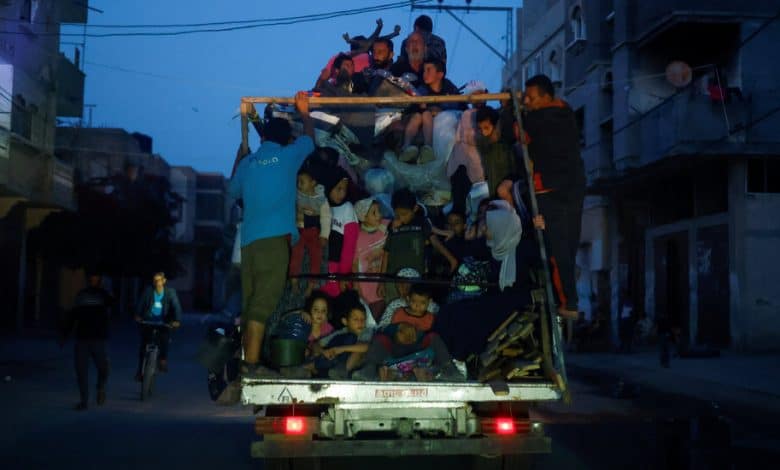People leaving Rafah describe yet another fearful flight from Israeli assaults.

Manal al-Wakeel and her extended family of 30 people thought they were going home.
Displaced from their home in Gaza City months ago, Ms. al-Wakeel and relatives began packing their bags on Monday and preparing to dismantle their tent in Rafah, at the southern edge of the Gaza Strip.
Hamas had announced that it had accepted a cease-fire proposal from Qatar and Egypt, leaving many Gazans thinking that a truce was imminent. Their joy was short-lived; it soon became clear that Hamas was not talking about the same proposal endorsed days earlier by Israel, which said the two sides remained far apart.
Instead, Israeli warplanes dropped leaflets in eastern Rafah telling people to flee and move to what Israel called a humanitarian zone to the north, as the Israeli military bombarded the area. Gazan health officials say that dozens have been killed since Israel’s incursion into parts of Rafah this week.
“We thought that day a cease-fire was possible,” said Ms. al-Wakeel, 48, who helped the aid group World Central Kitchen prepare hot meals.
She and her family had been sheltering near the Abu Yousef al-Najjar Hospital, in an area battered by Israeli airstrikes and ground combat. The director of the hospital, Dr. Marwan al-Hams, said on Monday that it had received the bodies of 26 people killed by Israeli fire, and treated 50 who were wounded. The hospital was evacuated the next day.
So rather than return home, on Tuesday night Ms. al-Wakeel, her husband, her 11 children and other relatives found a semi-truck that would take them and their belongings, including suitcases of clothes, pots and pans and tents, for 2,500 shekels — about $670 — in search of another place to stay.
